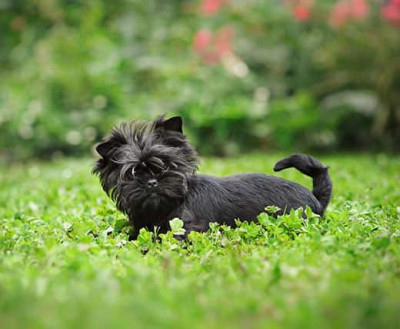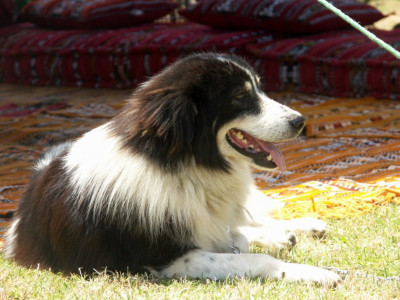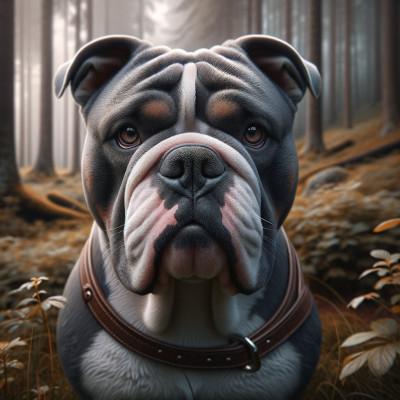Select animal and breed you want to learn more about
Dog Breeds Ultimate Guide
Dog Breeds Ultimate Guide
ABERDEEN TERRIER
The Aberdeen Terrier, also known as the Aberdeen Angus Terrier, is a small to medium-sized dog breed known for its distinctive wiry coat, perky ears, and lively personality. Originally bred in Scotland for hunting and guarding tasks, these terriers are intelligent, brave, and loyal companions. With a moderate energy level and a strong prey drive, the Aberdeen Terrier requires regular exercise and mental stimulation to thrive in a loving home environment.
The Aberdeen Terrier, also known as the Aberdeen Angus Terrier, is a small to medium-sized dog breed known for its distinctive wiry coat, perky ears, and lively personality. Originally bred in Scotland for hunting and guarding tasks, these terriers are intelligent, brave, and loyal companions. With a moderate energy level and a strong prey drive, the Aberdeen Terrier requires regular exercise and mental stimulation to thrive in a loving home environment.
AFFENPINSCHER
The Affenpinscher is a small, lively dog known for its charming monkey like expression and wiry coat. Originating in Germany, this breed is spirited, curious, and bold, making a delightful companion for those seeking a playful and confident pet. Affectionately nicknamed the "monkey dog," the Affenpinscher is full of personality and makes a dedicated watchdog despite its size. With a dense and rough coat that requires regular grooming, the Affenpinscher is a loving and entertaining addition to any home.
The Affenpinscher is a small, lively dog known for its charming monkey like expression and wiry coat. Originating in Germany, this breed is spirited, curious, and bold, making a delightful companion for those seeking a playful and confident pet. Affectionately nicknamed the "monkey dog," the Affenpinscher is full of personality and makes a dedicated watchdog despite its size. With a dense and rough coat that requires regular grooming, the Affenpinscher is a loving and entertaining addition to any home.
AFGHAN HOUND
The Afghan Hound is a regal and elegant breed known for its graceful appearance and flowing coat. Originating from Afghanistan, this ancient breed is characterized by its long, silky fur, distinctive topknot, and narrow build. Despite their aristocratic demeanor, Afghan Hounds are independent and intelligent, requiring patient training and regular grooming to maintain their luxurious coat. Known for their athleticism and graceful movement, Afghan Hounds excel in lure coursing and make loyal companions for those willing to invest time in their care.
The Afghan Hound is a regal and elegant breed known for its graceful appearance and flowing coat. Originating from Afghanistan, this ancient breed is characterized by its long, silky fur, distinctive topknot, and narrow build. Despite their aristocratic demeanor, Afghan Hounds are independent and intelligent, requiring patient training and regular grooming to maintain their luxurious coat. Known for their athleticism and graceful movement, Afghan Hounds excel in lure coursing and make loyal companions for those willing to invest time in their care.
AFRICAN LION HOUND
The African Lion Hound, also known as the Rhodesian Ridgeback, is a noble and majestic breed originating from Southern Africa. With their distinctive ridge of hair along their back, they are known for their exceptional hunting abilities and unwavering loyalty. These intelligent and independent dogs require consistent training and regular exercise to thrive. The African Lion Hound makes a devoted companion for active families who can provide the necessary mental and physical stimulation this proud breed craves.
The African Lion Hound, also known as the Rhodesian Ridgeback, is a noble and majestic breed originating from Southern Africa. With their distinctive ridge of hair along their back, they are known for their exceptional hunting abilities and unwavering loyalty. These intelligent and independent dogs require consistent training and regular exercise to thrive. The African Lion Hound makes a devoted companion for active families who can provide the necessary mental and physical stimulation this proud breed craves.
AIDI
The Aidi, also known as the Berber, is a fearless and loyal breed originating from Morocco. These medium to large sized dogs are highly intelligent, making them excellent guardians and herders. With a strong prey drive and protective instincts, the Aidi is a natural watchdog, ever alert to its surroundings. Their dense coat and muscular build enable them to endure harsh weather conditions and rugged terrains. A loyal companion and vigilant protector, the Aidi makes a devoted family pet.
The Aidi, also known as the Berber, is a fearless and loyal breed originating from Morocco. These medium to large sized dogs are highly intelligent, making them excellent guardians and herders. With a strong prey drive and protective instincts, the Aidi is a natural watchdog, ever alert to its surroundings. Their dense coat and muscular build enable them to endure harsh weather conditions and rugged terrains. A loyal companion and vigilant protector, the Aidi makes a devoted family pet.
AIREDALE TERRIER
The Airedale Terrier, known as the "King of Terriers," is a versatile and intelligent breed with a distinctive wire coat and a playful yet courageous nature. With origins in England, this breed excels in a variety of roles, including hunting, working, and companionship. Airedales are loyal, protective, and energetic dogs that require regular exercise and mental stimulation. They are known for their independent spirit, strong prey drive, and strong willed personality, making them a beloved choice for experienced owners.
The Airedale Terrier, known as the "King of Terriers," is a versatile and intelligent breed with a distinctive wire coat and a playful yet courageous nature. With origins in England, this breed excels in a variety of roles, including hunting, working, and companionship. Airedales are loyal, protective, and energetic dogs that require regular exercise and mental stimulation. They are known for their independent spirit, strong prey drive, and strong willed personality, making them a beloved choice for experienced owners.
AKBASH
The Akbash is a large, noble breed originating from Turkey, known for their remarkable dedication and protective nature towards their flock. These majestic white dogs possess a calm yet alert demeanor, making them excellent livestock guardians. Renowned for their courage and intelligence, Akbashes are independent thinkers with a strong instinct to defend their charges. While gentle and affectionate with their families, they require early socialization and consistent training to thrive as well adjusted companions.
The Akbash is a large, noble breed originating from Turkey, known for their remarkable dedication and protective nature towards their flock. These majestic white dogs possess a calm yet alert demeanor, making them excellent livestock guardians. Renowned for their courage and intelligence, Akbashes are independent thinkers with a strong instinct to defend their charges. While gentle and affectionate with their families, they require early socialization and consistent training to thrive as well adjusted companions.
AKITA
The Akita is a powerful and dignified dog breed originating from Japan, known for its loyalty, intelligence, and independent nature. They have a distinctive curled tail, erect ears, and a dense double coat that comes in various colors. Akitas are renowned for their strong protective instincts, making them excellent guard dogs. However, they require firm training and socialization to manage their dominant tendencies. With the right guidance and care, Akitas can be loving, devoted companions for experienced dog owners.
The Akita is a powerful and dignified dog breed originating from Japan, known for its loyalty, intelligence, and independent nature. They have a distinctive curled tail, erect ears, and a dense double coat that comes in various colors. Akitas are renowned for their strong protective instincts, making them excellent guard dogs. However, they require firm training and socialization to manage their dominant tendencies. With the right guidance and care, Akitas can be loving, devoted companions for experienced dog owners.
AKITA INU
The Akita Inu is a dignified and powerful dog breed originating from Japan, known for its loyalty, courage, and striking appearance. With a strong and independent nature, Akitas require firm training and socialization from an early age. Though affectionate and protective towards their families, they can be reserved or wary around strangers. Akitas have a dense double coat that comes in various colors, including white, brindle, and red. Their distinctive curled tail and triangular ears contribute to their majestic and regal presence.
The Akita Inu is a dignified and powerful dog breed originating from Japan, known for its loyalty, courage, and striking appearance. With a strong and independent nature, Akitas require firm training and socialization from an early age. Though affectionate and protective towards their families, they can be reserved or wary around strangers. Akitas have a dense double coat that comes in various colors, including white, brindle, and red. Their distinctive curled tail and triangular ears contribute to their majestic and regal presence.
ALANO ESPANOL
The Alano Español is a powerful and muscular breed originating from Spain, known for its impressive strength, endurance, and tenacity. These dogs are characterized by their imposing appearance, with a broad head, strong jaw, and distinctive folded ears. They have a loyal and courageous nature, making them excellent guard dogs and companions. The Alano Español requires firm leadership and early socialization to channel its natural protective instincts positively. Known for their versatility, they excel in activities such as hunting, herding, and agility.
The Alano Español is a powerful and muscular breed originating from Spain, known for its impressive strength, endurance, and tenacity. These dogs are characterized by their imposing appearance, with a broad head, strong jaw, and distinctive folded ears. They have a loyal and courageous nature, making them excellent guard dogs and companions. The Alano Español requires firm leadership and early socialization to channel its natural protective instincts positively. Known for their versatility, they excel in activities such as hunting, herding, and agility.
ALAPAHA BLUE BLOOD BULLDOG
The Alapaha Blue Blood Bulldog, a rare and dignified breed originating from the Alapaha River region in Georgia, is renowned for its loyalty, intelligence, and protective nature. With a muscular build and a distinctive blue coat, this breed is both gentle and fearless, making it an ideal family companion and guardian. Known for its strong work ethic and loving demeanor, the Alapaha Blue Blood Bulldog is a cherished breed for those seeking a devoted and steadfast canine companion.
The Alapaha Blue Blood Bulldog, a rare and dignified breed originating from the Alapaha River region in Georgia, is renowned for its loyalty, intelligence, and protective nature. With a muscular build and a distinctive blue coat, this breed is both gentle and fearless, making it an ideal family companion and guardian. Known for its strong work ethic and loving demeanor, the Alapaha Blue Blood Bulldog is a cherished breed for those seeking a devoted and steadfast canine companion.
ALAPAHA BLUE BULLDOGS
The Alapaha Blue Bulldog is a rare and majestic breed known for its loyal and protective nature. Originating from the southern United States, these strong and muscular dogs have a distinctive blue coat with various markings. Despite their imposing appearance, Alapaha Blue Bulldogs are affectionate and devoted family companions, excelling in guard dog roles. Their intelligence, loyalty, and courage make them a wonderful choice for experienced dog owners looking for a devoted and loving canine companion.
The Alapaha Blue Bulldog is a rare and majestic breed known for its loyal and protective nature. Originating from the southern United States, these strong and muscular dogs have a distinctive blue coat with various markings. Despite their imposing appearance, Alapaha Blue Bulldogs are affectionate and devoted family companions, excelling in guard dog roles. Their intelligence, loyalty, and courage make them a wonderful choice for experienced dog owners looking for a devoted and loving canine companion.
LATEST PET BLOGS
THE PRICE OF DOG OWNERSHIP FROM PETCURIOUS
Thinking of getting a dog? This article breaks down the true cost of dog ownership, from adoption fees and vet bills to food, toys, and more. Discover the financial commitment of being a responsible pet parent.
Thinking of getting a dog? This article breaks down the true cost of dog ownership, from adoption fees and vet bills to food, toys, and more. Discover the financial commitment of being a responsible pet parent.
WHAT TO DO WHEN YOU LOSE YOUR PET
Your pet is missing? Don't panic! PetCurious provides a step-by-step guide to help you find your lost furry friend. From searching your home and neighborhood to leveraging technology and community resources, we've got you covered. Increase your chances of a happy reunion with our expert tips and advice.
Your pet is missing? Don't panic! PetCurious provides a step-by-step guide to help you find your lost furry friend. From searching your home and neighborhood to leveraging technology and community resources, we've got you covered. Increase your chances of a happy reunion with our expert tips and advice.
HOW TO HELP A DOG OVERCOME SEPARATION ANXIETY
Separation anxiety in dogs isn’t easy— both for them and for you. Seeing your furry friend stressed out whenever you leave the house is heartbreaking. But don’t worry, there are ways to help your dog feel more comfortable when you're not around. Here are a few ways you can prepare your dog for times when you won’t be around—may it be a day of work or perhaps a long vacation.
Separation anxiety in dogs isn’t easy— both for them and for you. Seeing your furry friend stressed out whenever you leave the house is heartbreaking. But don’t worry, there are ways to help your dog feel more comfortable when you're not around. Here are a few ways you can prepare your dog for times when you won’t be around—may it be a day of work or perhaps a long vacation.
HOW CAN I KEEP OUTDOOR CATS WARM IN WINTER?
Learn how to keep outdoor cats warm during winter with practical tips and insights for cat owners. Ensure your feline friends lead happy lives in colder weather.
Learn how to keep outdoor cats warm during winter with practical tips and insights for cat owners. Ensure your feline friends lead happy lives in colder weather.
10 COLD WEATHER ANIMAL SAFETY TIPS FOR PETS
Uncover 10 essential cold weather safety tips to keep your pets warm and protected this winter. Perfect for pet owners looking to ensure pet well-being.
Uncover 10 essential cold weather safety tips to keep your pets warm and protected this winter. Perfect for pet owners looking to ensure pet well-being.
THINGS TO BE AWARE OF WHEN ADOPTING A PET
Discover essential tips on pet adoption, covering commitment, financial planning, training, socialization, and health. Adopting a pet can be a joyful journey with your new companion.
Discover essential tips on pet adoption, covering commitment, financial planning, training, socialization, and health. Adopting a pet can be a joyful journey with your new companion.


















